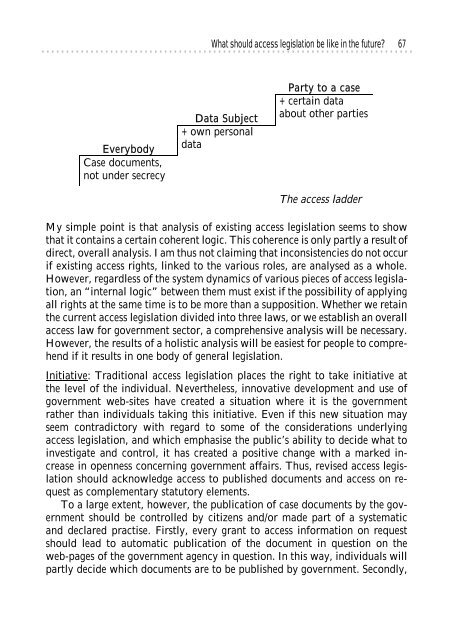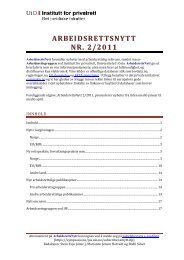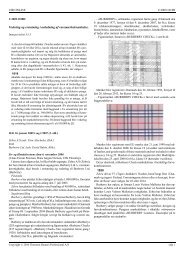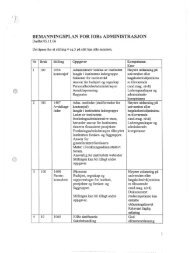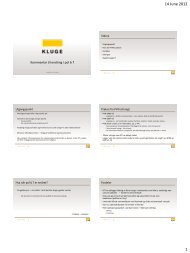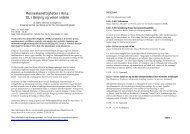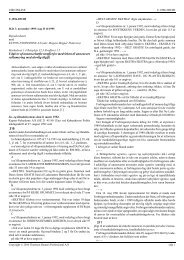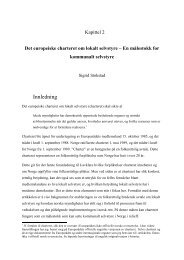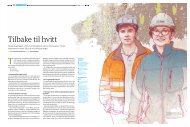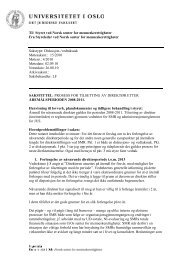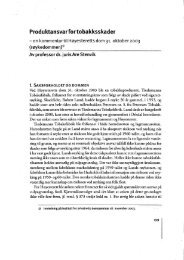Lee A. Bygrave (red.) YULEX 2002 - Universitetet i Oslo
Lee A. Bygrave (red.) YULEX 2002 - Universitetet i Oslo
Lee A. Bygrave (red.) YULEX 2002 - Universitetet i Oslo
You also want an ePaper? Increase the reach of your titles
YUMPU automatically turns print PDFs into web optimized ePapers that Google loves.
............................................................................<br />
What should access legislation be like in the future? 67<br />
Everybody<br />
Case documents,<br />
not under secrecy<br />
Data Subject<br />
+ own personal<br />
data<br />
Party to a case<br />
+ certain data<br />
about other parties<br />
The access ladder<br />
My simple point is that analysis of existing access legislation seems to show<br />
that it contains a certain coherent logic. This coherence is only partly a result of<br />
direct, overall analysis. I am thus not claiming that inconsistencies do not occur<br />
if existing access rights, linked to the various roles, are analysed as a whole.<br />
However, regardless of the system dynamics of various pieces of access legislation,<br />
an “internal logic” between them must exist if the possibility of applying<br />
all rights at the same time is to be more than a supposition. Whether we retain<br />
the current access legislation divided into three laws, or we establish an overall<br />
access law for government sector, a comprehensive analysis will be necessary.<br />
However, the results of a holistic analysis will be easiest for people to comprehend<br />
if it results in one body of general legislation.<br />
Initiative: Traditional access legislation places the right to take initiative at<br />
the level of the individual. Nevertheless, innovative development and use of<br />
government web-sites have created a situation where it is the government<br />
rather than individuals taking this initiative. Even if this new situation may<br />
seem contradictory with regard to some of the considerations underlying<br />
access legislation, and which emphasise the public’s ability to decide what to<br />
investigate and control, it has created a positive change with a marked increase<br />
in openness concerning government affairs. Thus, revised access legislation<br />
should acknowledge access to published documents and access on request<br />
as complementary statutory elements.<br />
To a large extent, however, the publication of case documents by the government<br />
should be controlled by citizens and/or made part of a systematic<br />
and decla<strong>red</strong> practise. Firstly, every grant to access information on request<br />
should lead to automatic publication of the document in question on the<br />
web-pages of the government agency in question. In this way, individuals will<br />
partly decide which documents are to be published by government. Secondly,


